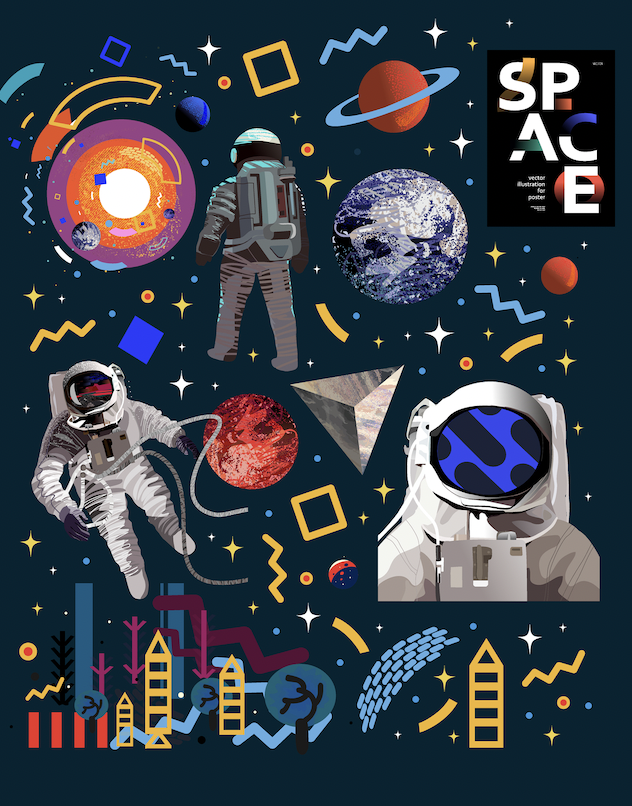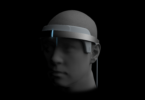When the Rakia mission launches from Cape Canaveral and heads to the International Space Station in the coming days it will carry 34 experiments focusing on everything from the future of food to improving human health and medicine both in space and on Earth.
Israeli astronaut Eytan Stibbe, a former fighter pilot and businessman, will conduct the innovative research on behalf of a variety of organizations, including Israeli startups. The aim is to make technological, scientific, and medical breakthroughs and help startups demonstrate how products developed on Earth – such as lab grown meat – operate in microgravity by doing proof-of-concept tests in space.
The mission brings together entrepreneurs, academics, government officials, local and global space industry representatives, and investors. It aims to provide local entrepreneurs, startups, and space ventures a support platform for knowledge-sharing, networking, and collaboration.
“This is the first time in history that that there is a public-private partnership space mission,” says Ran Livne, head of the not-for-profit Ramon Foundation, which is organizing the Rakia mission with the Israeli Space Agency (ISA) and and Israel’s Ministry of Innovation, Science, and Technology.
It is also a first for open innovation in space, says Livne. The experiments were chosen from a public call for proposals open to any Israeli organization or team that wanted to conduct experiments or demonstrate technologies aboard the International Space Station (ISS) including startups, academic institutes, research centers, not-for-profit organizations, entrepreneurs, and commercial organizations. Collaboration between any of these, including with international partners, is encouraged. The mission is expected to create hundreds of educational projects aimed at children from kindergarten through high school, initiate new models for public-private partnerships, and assist space industry entrepreneurs to start their own businesses.
For Israel the Rakia mission illustrates that the death of Ilan Ramon, Israel’s first astronaut, who died in 2003 when NASA’s Columbia space shuttle blew up on its return into the Earth’s atmosphere, did not kill Israel’s dream to shoot for the stars. It has instead fostered an industry, inspiring entrepreneurs, and students to focus on space. To encourage this trend during his planned stay at the ISS, astronaut Stibbe will devote most of his time not only performing experiments and testing the innovative technologies but lecturing in physics and other science fields to Israeli school children in Hebrew.
Forty-four experiments were chosen by a scientific team to be incorporated in the mission. They underwent a long approval process with the Ramon Foundation, NASA, and Axiom, an American privately funded space infrastructure developer headquartered in Houston, Texas.Thirty-four experiments made it to the finish line and are on the schedule for the launch, which is expected to take place at the end of March/early April and is being operated by Axiom. Stibbe will be one of four astronauts on Axiom’s Ax-1, which will carry the first ever private crew to the ISS in this pioneering research mission.
The hope is to create a space tech ecosystem that will rival in size and economic impact those that Israel has already created in areas like auto tech and cybersecurity, says Livne. Today there are around 60 Israeli startups focusing on space. The aim is to have 300 or more.
“What the Ramon Foundation and the ISA are doing is taking Israeli innovation and out-of-the box thinking and recruiting it for the growing space market, ” says Moti Tikotinski, a new space business development adviser who is focusing on assisting companies and startups in this rapidly expanding sector. “A lot of companies and startups that have developed unique products that were not originally aimed at space are finding that they can bring value in space,” he says. Even if the ROI is not immediately apparent, the Rakia mission experiments could launch a bigger market in the mid-to-long term and serve, in the short turn, as excellent PR for existing products and valuable input for investors, he says.
Remote Controlled Micro Space Labs
Seven out of the 34 experiments in space will be underpinned by technology developed by Israeli scale-up SpacePharma, which has developed miniaturized, autonomous, unmanned and remote controlled lab systems containing sensors and readers that can work in different microgravity platforms, from ground simulators to the ISS.
The modularity of SpacePharma’s system enables adaptation to support a wide range of experiments using tailor-made lab-on-chips, including 3D cell culturing, organs-on-chip for tissue engineering, disease modeling, tumor spheroids, bacterial growth and vaccine research.
“The beauty of this technology is it is very generic and can be applied to food, chemistry, materials, or medicines,” says SpacePharma Chairman and R&D CEO Yossi Yamin. The only thing astronauts need to do to active experiments using SpacePharma’s lab-on-a-chip solution is to plug them into a power outlet and a communication link. Everything else can be done remotely.
The seven-year-old Israeli company works separately and with both industrial and academic partners to better understand human physiology in health and disease using organ-on-chip and protein crystallization methodologies. It also helps design unique formulations that aim to create better therapeutic properties.
“We are enablers,” says Yamin. “We don’t know how to create a new medicine from idea to certification, but we can enable others to move from fantasy to real creation.” The company’s technology allows those conducting experiments to change parameters mid-experiment, if necessary, to improve outcomes, once they start receiving data collected by sensors and it is sent to NASA via a downlink. Yamin lists several other advantages of its solutions such as powder rehydration, which allows the company to ‘wake up’ delicate nutrients to start experiments after the shock of the launch, and the ability to crystallize any molecule smaller than 500 dalton in size, an integral component to the drug discovery process.
Microgravity improves protein crystals growth and contributes to optimization of nanofluidic systems for development of technologies in various fields, such as diagnostics and drug delivery, says Danny Bavli, director of organ-on-chip and single cell genomics at SpacePharma. He cities LRKK2 as an example of a protein that was crystallized in space to help speed up drug modeling for Parkinson’s Disease.
In addition, microgravity and spaceflight have been associated with physiological alterations in a variety of organisms,from viruses and bacteria to mammals, including humans. Changes induced by spaceflight may serve as models to help combat conditions such as osteoporosis and aging of the immune system on Earth, Bavli says.
The first SpacePharma advanced lab for biological research was launched to the ISS in November 2018 onboard Northrop Grumman’s unmanned resupply spacecraft. It returned to Earth in January 2019 on SpaceX’s Dragon CRS-16 mission after performing research on human muscle cells in orbit. Research into the effect of microgravity on muscle function is now being applied to understand amyotrophic lateral sclerosis or ALS, a progressive nervous system disease that affects nerve cells in the brain and spinal cord, causing loss of muscle control, says Bavli. There is currently no cure for ALS.
“SpacePharma holds a deep technology which it is about shrinking instruments in order to create a significant advantage compared to other systems in the microbiology domain,” says Yamin. “Our microsystem can provide mega results on our lives on earth and beyond.”
Cow Cells-On-A-Chip
One of the company’s using SpacePharma’s technology on the Rakia mission is Aleph Farms, the brainchild of Israeli food company Strauss Group, Israel’s Technion Institute of Technology and food engineer and biologist Didier Toubia. The company’s advisory board includes Hollywood actor Leonardo DiCaprio and retired NASA astronaut Karen Nyberg.
In September 2019, Aleph Farms conducted the world’s first experiment of meat cultivation from cells on the ISS. It partnered with 3D Bioprinting Solutions, a technology provider of 3D bioprinters, and successfully assembled a small-scale muscle tissue — the building block of its cultivated steak — under microgravity conditions. Since then the company has been developing a second production platform, based on 3D bioprinting, together with a research partner at the Technion University and Prof. Shulamit Levenberg, Aleph Farm’s Co-Founder and Chief Scientific Advisor. The outcome of this research allowed Aleph Farms to produce thicker and marbled steaks directly from animal cells. The proprietary system it created, similar to the vascularization in tissues, enables the perfusion of nutrients across the thicker tissue and gives the steak a similar shape and structure as that found in livestock before and during cooking.
During the Rakia Mission, Aleph Farms has designed an experiment to better understand the effects of micro gravity on two basic processes in its first production platform and thin-cut steaks. These processes will include proliferation and differentiation of cow cells into the building blocks of any steak in nature.
Inside the lab-on-a-chip device designed for Aleph Farms by SpacePharma there are pumps, valves and waste reservoirs that replace the growth medium that feeds the company’s cow cells. When the system changes the nutritional composition of the growth medium, the cells receive a signal to mature into muscle tissue.
The process Aleph Farms has designed is automated. The cell-culture is monitored by imaging tools in real-time from Earth so Aleph Farms can see the development of the experiment as it unfolds. To study the effects of microgravity it will conduct a parallel experiment on Earth, mirroring the same conditions that the system will experience on the ISS, minus the micro gravity, and the results of the two experiments will be compared.
“The common ground between Aleph Farms’ main activities and the Aleph Zero [space] program is our vision to ensure access to quality food independent of climate or availability of natural resources (land, water) to anyone, anytime and anywhere,” says Rosenfeld. “Our space program serves both our short-term and long-term endeavors on Earth, a little bit like car manufacturers have Formula One teams, testing and validating new technologies or materials in the toughest environments before transferring them to mainstream cars.”
Fluids behave in a different way in space. Lack of gravity is known to induce adverse effects on both the physiological and cellular levels. Astronauts suffer from various medical conditions as a result of prolonged stay in microgravity, such as bone loss and muscle atrophy. Several experiments conducted on the ISS have demonstrated that biological cells behave very differently than on Earth. For example, their size, shape, adherence properties and various cellular processes such as differentiation and programmed cell death are affected. So simply replicating the terrestrial process of meat cultivation to a microgravity environment is not a straightforward mission, says Rosenfeld.
“Coping with fast-changing temperatures, limited access to natural resources and zero gravity conditions, drives efficiency in our processes,” he says. “ In space, we develop closed-loop systems with zero waste and zero emissions. By developing such efficient processes in using resources, we can further reduce the environmental footprint of our mainstream production here on Earth.
Preparing For Interplanetary Life
Other food experiments on the Rakia mission include Space Hummus, which will use synthetic biology and study plants’ extracellular optogenetics using light and sensors to grow chickpea plants in space. The study will be led by Yonatan Winetraub, one of the founders of SpaceIL, the non-profit organization that attempted to land Israel’s Beresheet, the first private interplanetary robotic mission, on the Moon on April 11, 2019. Scientists and engineers from Israel and Stanford University, Moon2Mars Ventures team, D-Mars, and students from Yeruham Science Center will also participate in that study. Fresh Greens In Space, an experiment designed by Israeli startup GreenOnyx, aims to develop vegetables in space filled with nutrients and dietary supplements, including a water-based lentil plant that can be grown under microgravity conditions in an autonomous growing facility.
Human health will be a big focus: Astronaut Stibbes will do medical screenings on urine while in space using technology developed by Healthy.io, an Israeli company with an FDA-approved smartphone app that enables at-home urinalysis. Other tests will measure anatomical and functional changes of astronauts’ eyes in space; how microgravity can change the structure of the heart, and the size of its cavities; how space affects aging of the immune system, and the progression of dementia, including Alzheimer’s disease; and how microgravity affects, under different conditions, nano ghosts, which are super tiny cells extracted from mesenchymal stem cell membranes that help repair human organs.
The findings will be key to enabling people to live in space.
“We are going to become a multi-planet species, “ says the Ramon Foundation’s Livne. “The vector is quite clear. This is where humanity is going, so I think eventually all companies will have to start thinking about the space dimension.”
The Rakia mission public-private partnership “is a new model that gives you a lens into what will be built in the future,” he says. “A decade from now we will have two or three more space stations and at least two of them will be private, and probably one of them will be created through a public private partnership.”
“We are going to need new technology for this,” says Livne, “and Israel is positioning itself to be a major player.”
This article is content that would normally only be available to subscribers. Sign up for a four-week free trial to see what you have been missing.
To access more of The Innovator’s Deep Dive articles click here.







